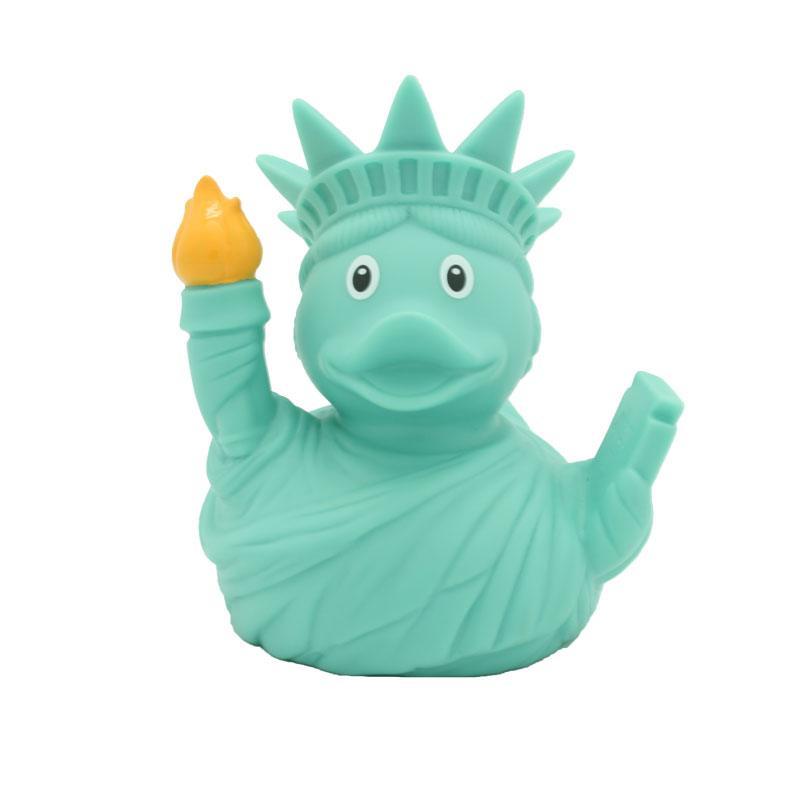Independence
July 3, 2018
“If it looks like a duck, and quacks like a duck, we have at least to consider the possibility that we have a small aquatic bird of the family anatidae on our hands.”
~ Douglas Adams

As more and more news comes to light about how tech companies have collected and sold the private data, profiles and histories of their users to advertisers (including hostile foreign governments) many people are looking for ways to limit the collection and selling of their personal information.
Facebook helped Cambridge Analytica and others develop psychological profiles of its users, based on their likes, clicks, habits, location, etc. The BBC just reported that Google now admits that Gmail users who have connected third-party apps to their accounts may have unwittingly given the human staff of those applications permission to read their personal email messages. Google’s search engine routinely tracks what you search and combines that information with your activities on their other products (YouTube, Gmail, etc.) in order to make the advertising they sell more effectively aimed at you personally.
On any free social media (and on some that we pay for, if we give permission for it) we are not the customers; we are the product. Companies like Facebook and Google are selling our information to their actual customers: advertisers. Worse, thanks to the personal information the tech giants supply to them, these advertisers are able to appeal to us subconsciously and mask their advertisements as news or pose as social media posts. Sometimes the goal is to persuade you to buy a soft drink or see a movie. However, some advertisers have a more sinister aim: to push hate and conflict, trigger emotional reactions and amplify conspiracy theories that benefit a particular group, be it corporate, criminal or political.
I myself am not on any social media. Still, I utilize multiple Google products. Until recently, like most people, I had come to use the brand name “Google” as a verb to describe searching on the internet. In fact, the Google search page was my home page when I opened my web browser (which is not Google Chrome, by the way). That was before I discovered DuckDuckGo!
One day, fed up with hearing about the latest privacy intrusions by tech companies and equally fed up by how ubiquitous Google products had become, I did a search for alternate search engines. DuckDuckGo was one of the results. I was happy to read that this company does not track its users’ online activity and search history. They don’t record your IP address or attach cookies to follow you around the web. If you click on a site, that site won’t be told what search terms you used to find them.
Ok, I thought to myself, then how do they make money?
I did some more research and found that DuckDuckGo makes money on ads based on some of the key words you use for a particular search, but only in that moment. For instance, if you type in “Flights to Italy” you may get 2 or 3 results clearly marked “ad” for travel sites. They also make money through online marketplaces such as Amazon or eBay. If you search for something, a clearly marked ad for Amazon may come up for that term. If you click on the ad and buy something, a code gets sent to Amazon to let them know that a particular item was purchased as a result of a DuckDuckGo search, and then DuckDuckGo receives a commission on the sale. What does not get recorded, is any information that would personally identify you, such as your search terms, browser or IP address.
Using this model, DuckDuckGo generates profits in the millions, rather than billions (like Google and Facebook). As a result, they don’t have to worry about the ethical or legal conflicts that come up with tracking users.
There are some inconveniences; since they don’t track you or your search habits, you won’t get auto-filled results or suggestions to your searches. You will need to be more specific if you want specific results. I got used to it pretty quickly. I like that I can specify the region I want to search, instead of having them do it for me. I also prefer the clean layout of their results page and the fact that I get less superfluous answers.
I have made DuckDuckGo my home page on all of my browsers now. And I have stopped using the word “Google” as a verb.
Here is a link, if you would like to try it yourself: DuckDuckGo
Happy Independence Day!
~~~~~~~~
Whether you are waking up to a day of work, get out the vote efforts, protest, taking care of family, organizing or simply taking a break from current events to curl up into a ball, I am re-posting this recipe from the 3rd year of the Philosopher’s Spoon; because, now more than ever, a nutritious comfort food like Cheesecake for Breakfast checks all the boxes…

Cheesecake for Breakfast
Don’t let the naughty-sounding name fool you, this no-bake recipe contains whole-grain cereal, nutritious walnuts, fresh fruit and yogurt. Stored in the freezer, these mini-cheesecakes are a super-tasty on-the-go breakfast that’s worth getting up for. I used Trader Joe’s Toasted Oatmeal Flakes in the crust.
3/4 cup finely crushed whole grain cereal flakes
3/4 cup ground walnuts*
3 tablespoons butter, melted
3 tablespoons organic maple syrup
2 (8oz) packages cream cheese, softened
1/3 cup organic sugar
2 teaspoons vanilla
1/2 cup whole milk Greek-style yogurt (vanilla or banana flavor)
6 oz fresh organic raspberries or blueberries
1 small banana, sliced
*Walnut pieces can be easily ground by placing them in a plastic baggy and crushing them with a rolling pin or mallet.
Line a 12 cup muffin pan with cupcake liners.
In a medium bowl, mix together crushed cereal flakes, ground walnuts, melted butter and maple syrup. Divide mixture among muffin cups and press into bottom of each cupcake liner to form a crust. Place in freezer to firm.
Meanwhile, with an electric mixer on low speed, beat cream cheese, sugar and vanilla until smooth. Add yogurt and continue beating until combined and smooth.
Remove crusts from freezer. Divide cream cheese mixture among muffin cups. Top cheese mixture with berries and banana slices. Cover muffin pan with plastic, then foil, and freeze at least one hour before serving.
Store cheesecakes in freezer. Thaw about 30 minutes at room temperature for a cool breakfast on a hot summer morning.
Note: You can store these for a few days in the refrigerator, instead of the freezer. If you do so, omit the banana slices, as they will discolor.
Makes 12 breakfast cheesecakes
July 4th, 2018 at 6:10 am
I just clicked on the DuckDuckGo link and switched to it as my search engine. Thank you for another great tip!